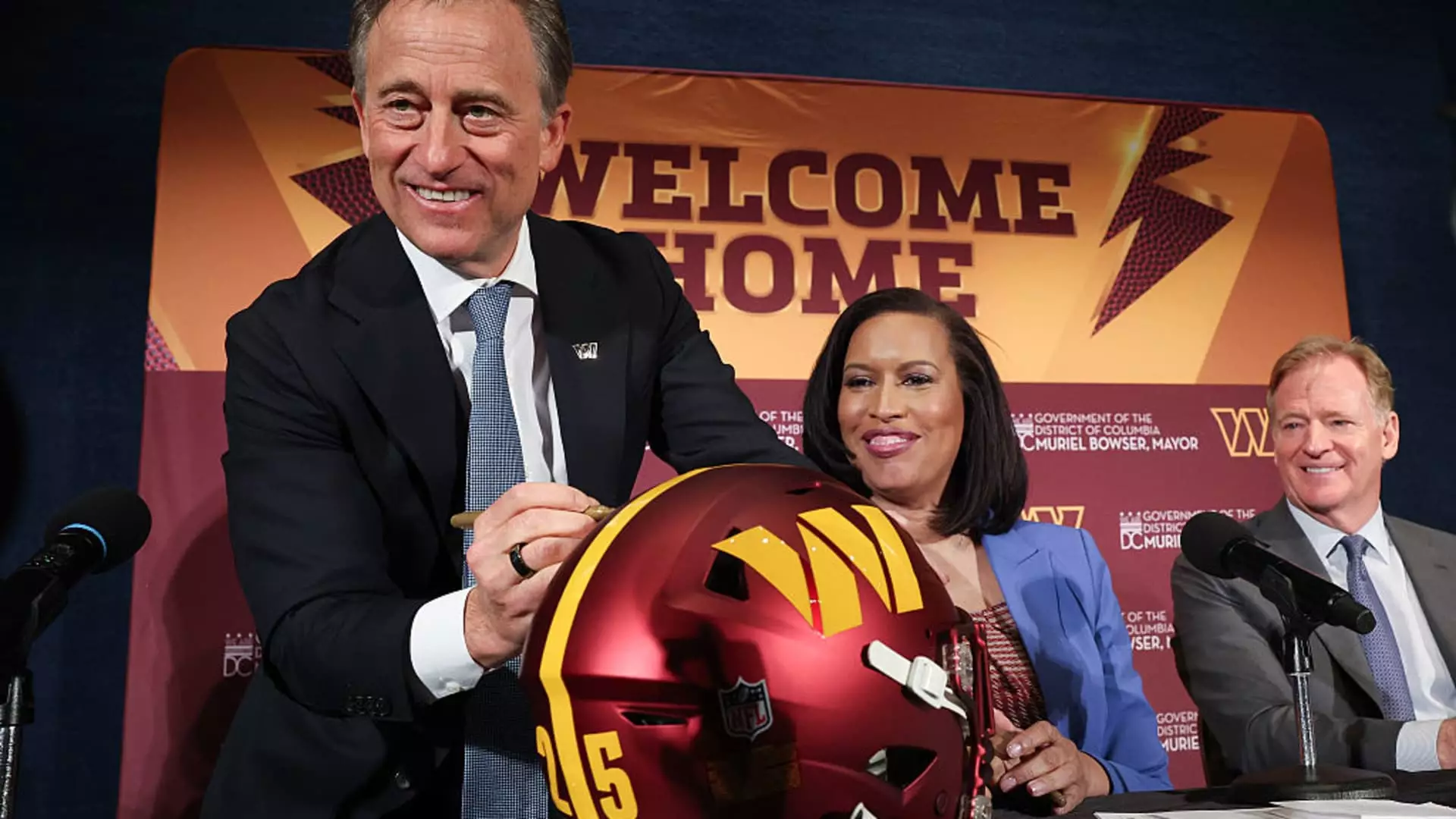The announcement that the Washington Commanders will return to their historical roots at the site of the Robert F. Kennedy Memorial Stadium is nothing short of monumental for both the franchise and the city. After spending nearly three decades in Landover, Maryland, this move stirs a blend of nostalgia and hopes for revitalization. But let’s be real; relocating a sports team is far more than just logistics—it’s a powerful narrative wrapped up in community identity, economic potential, and, inevitably, deep-seated frustrations.
Economic Implications: A Double-Edged Sword
While Commanders’ managing partner Josh Harris touts a $3.7 billion investment that is expected to bring 2,000 permanent jobs and $4 billion in tax revenue, it’s crucial to interrogate this rosy picture. What happens if those projections don’t pan out? Economic pledges often fall short, leaving local governments to shoulder the burden while taxpayers are left questioning the legitimate benefit to their communities. The promise of new infrastructure and revitalization that comes with the stadium development is alluring, but skepticism lingers—will actual residents truly reap the rewards, or merely foot the bill for owners looking to enrich themselves?
Reviving a Legacy
In a sporting landscape that frequently prioritizes profit over heritage, the reclaiming of RFK Stadium’s legacy taps into something visceral for fans. It’s more than just nostalgia; it represents the fullness of a culture that celebrated three Super Bowl victories. However, the risk of romanticizing this legacy is palpable. While it’s enticing to rally behind the storied past of the Commanders, one must question whether the current ownership will honor that heritage adequately or exploit it as a marketing tool.
The Cost of Privilege
It’s significant to analyze the $500 million contribution from the D.C. government, financed through existing sports funding. In an era where resources are finite and social needs grow more urgent, the prioritization of funds for a sports facility raises eyebrows. Is this investment in a football stadium promising to contribute to urban revitalization genuinely worth the costs? The nuance here dwells in the intersection of opulence and community—a spectacle for the privileged versus the pressing needs of ordinary citizens.
Political Play or Urban Renewal?
For D.C. Mayor Muriel Bowser, this venture is portrayed as a triumph and a testament to the city’s aspirations. But there lies an undeniable political undertone. During electoral cycles, reallocating resources toward lucrative sports ventures can serve as an effective distraction from more pressing civic issues, such as affordable housing and education. The narrative being spun here—to create a multifaceted “sports capital”—is compelling, but we must remain alert to the sublimated complexities that come with such a far-reaching urban development.
With debates raging on the viability and ethics of such grand projects, it’s imperative that communities challenge the status quo. If this return of the Commanders is framed as a beacon of progress for D.C., it must be accompanied by transparency, clear communication, and accountability to ensure that the community truly benefits from this supposed renaissance. The exhilaration over a football team’s return should never eclipse the pressing needs of the residents who call this city home.

